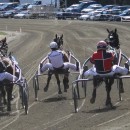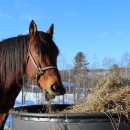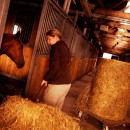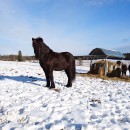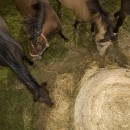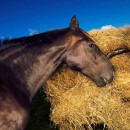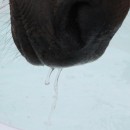Forage-only diets have positive effects on exercise temperament and post-exercise recovery
This study examined the impacts on body weight and exercise response in trotters in training when fed a high energy forage-only diet...
Read MoreChew on hay or silage – does the eating behaviour change?
In this study horses eating behaviour on hay and silage diets have been examined with the help of five trotters in race training. They...
Read MoreReduced intestinal motility when stabling horses after pasture
Management regimes have been shown to impact horse health, for example stabled horses have an increased risk for colic. Here we summarize...
Read MoreStoregården’s Icelandic horses
Here is a new reportage from Storegården where Maria Vemdal has been breeding Icelandic horses for about 10 years now. Read about...
Read MoreForage prevents stereotypies
Captive animals faced with insoluble problems can develop behavioural disturbances, stereotypies. Examples of behavioural disturbances are...
Read MoreHorses are herbivores
Horses are large grass eating animals, herbivores, and free-living horses graze 14-18 hours of the day. The horse relies on hindgut...
Read MoreOn dry forage the horse has to drink more
Forage contain different amounts of water depending on if it is conserved as hay, haylage or silage. Pasture contains the most water,...
Read More
